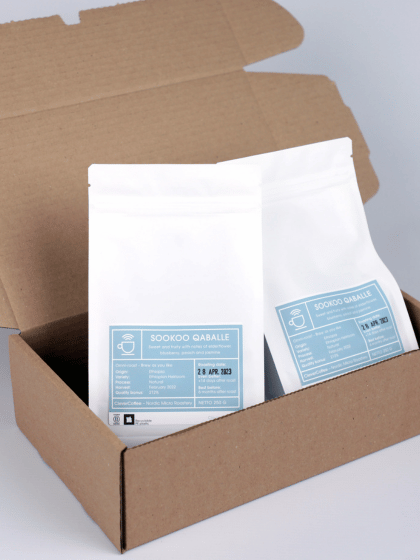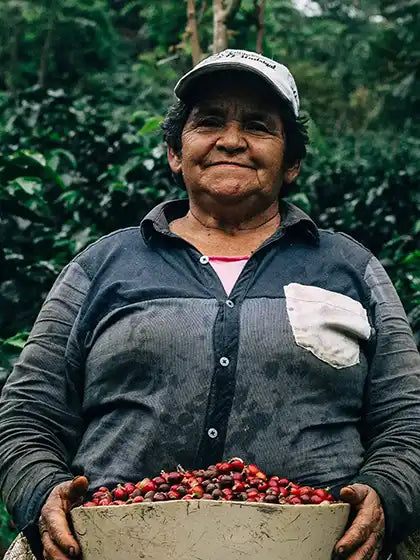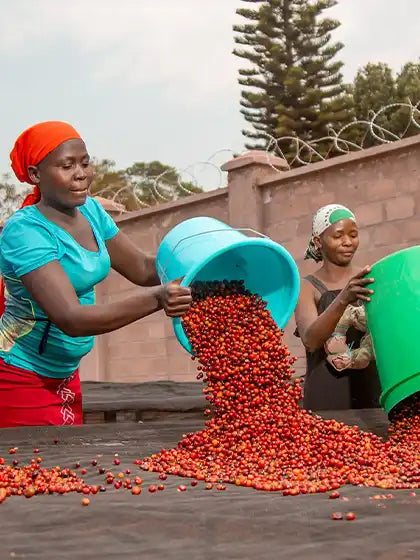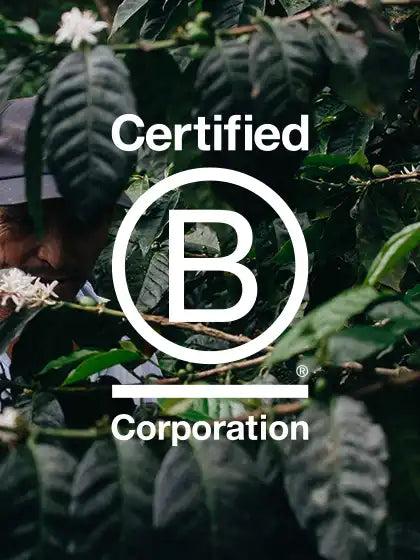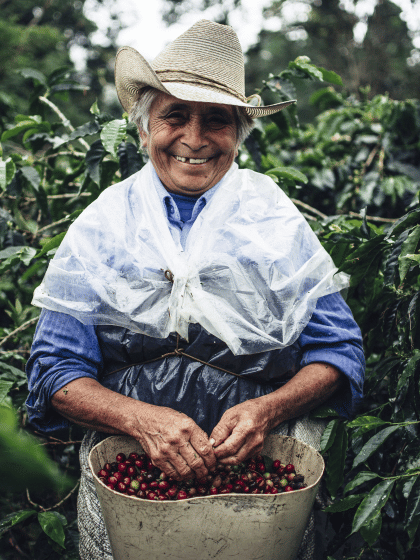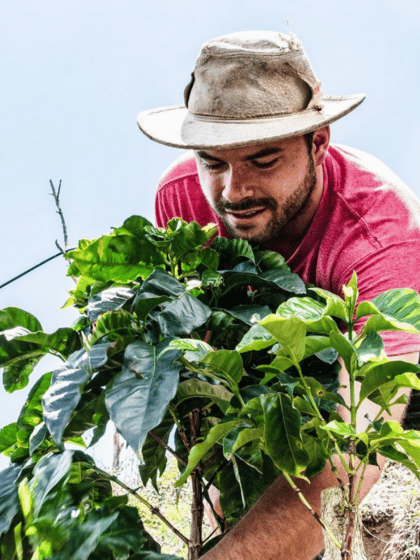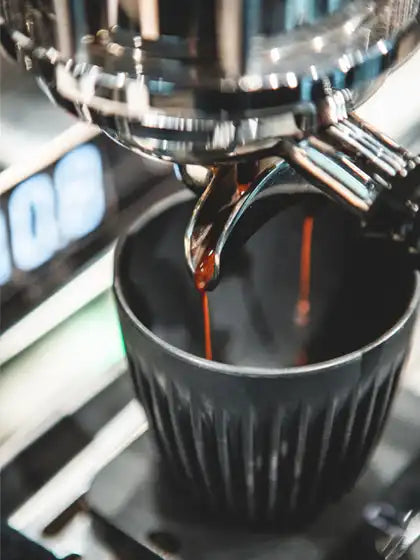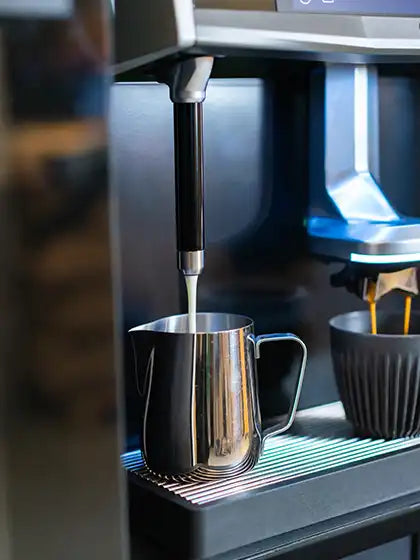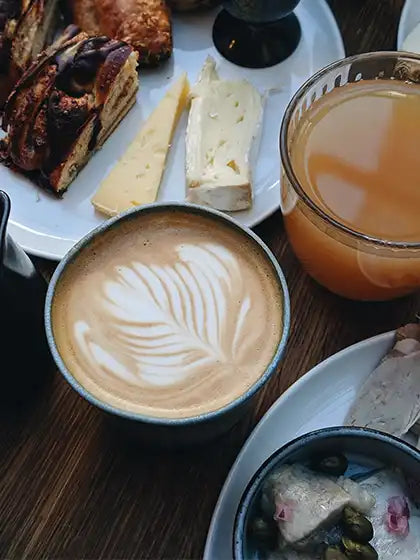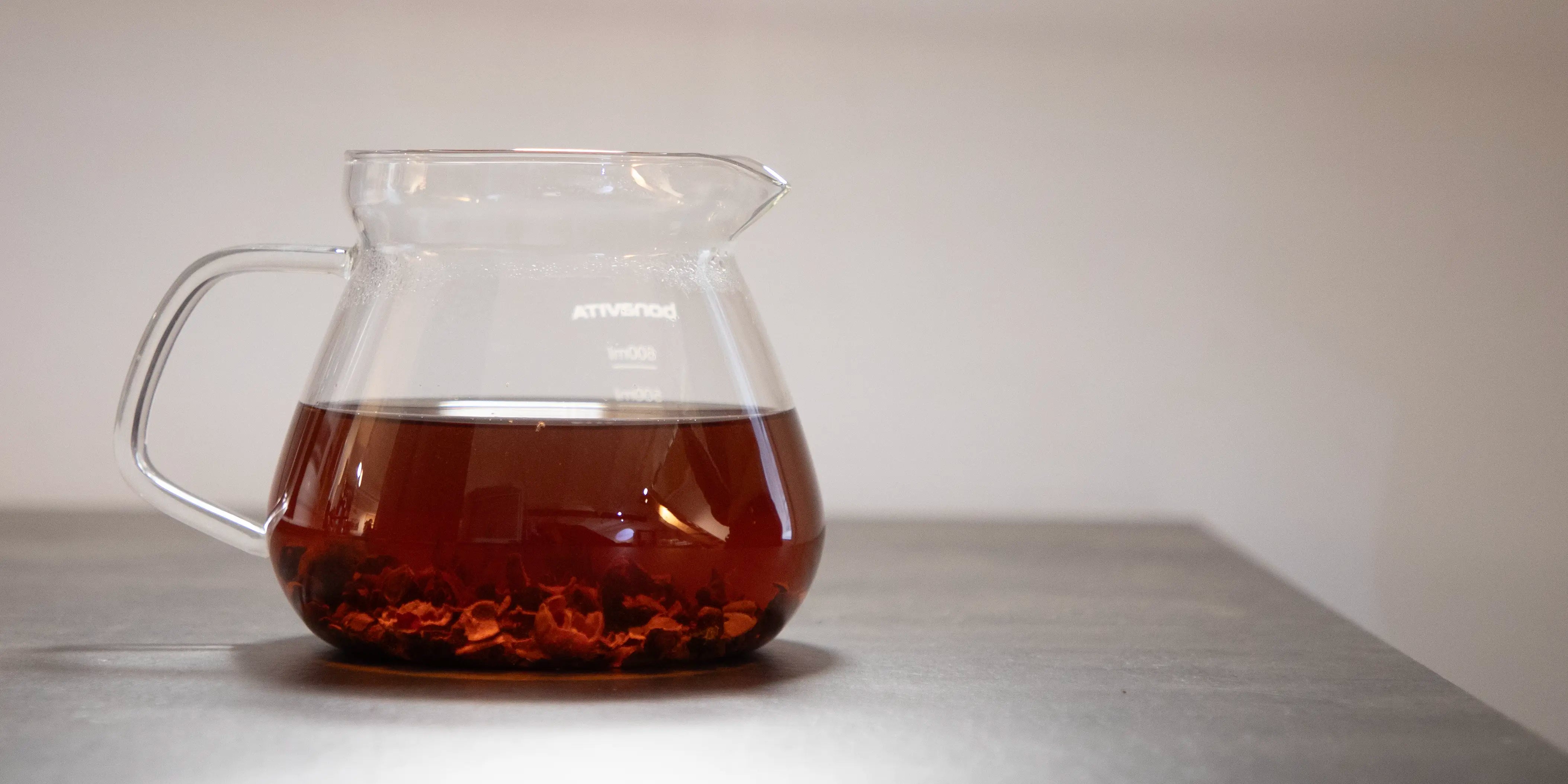
Coffee tea
Cascara
Cascara is the skin – or husk – and the pulp of the coffee cherry. It can make an incredibly delicious coffee tea, syrup or whatever your heart desires.
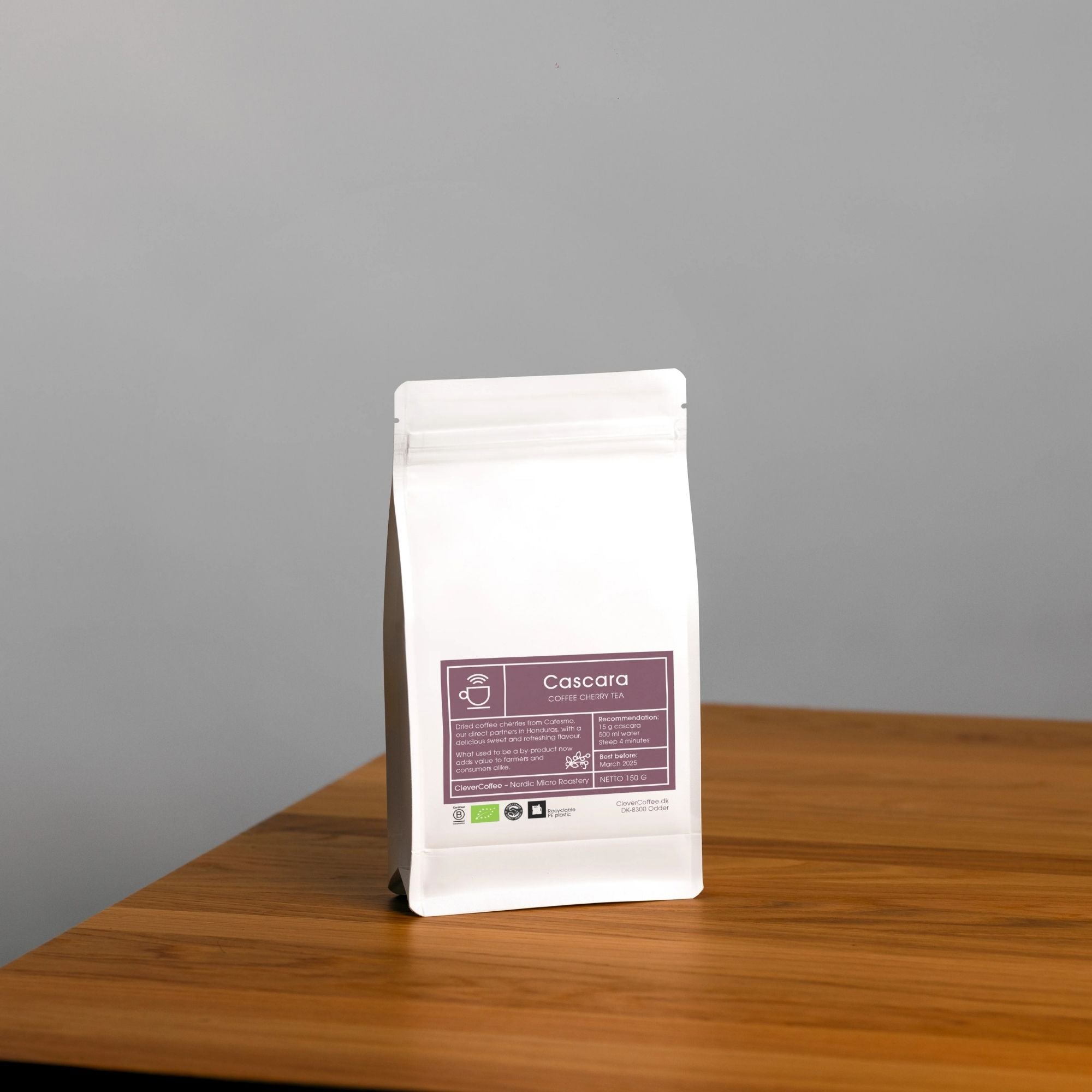
CleverCoffee
Cascara - Honduras
Fantastically sweet and refreshing cascara from Honduras, produced by Hidardo Hernandez, who, unlike most, treats the cascara as a valuable product – and you can taste it.
Cascara can help create extra value and less waste in coffee production for coffee farmers, and we would like to support that.
- Balanced sweetness and acidity with notes of rose hip, hibiscus and lemonade
- Residual product from the production of coffee
Cascara and Its Potential
Cascara is the shell and sometimes also the pulp of the coffee cherry that surrounds the coffee bean. It represents a part of the coffee berry that has often been overlooked but which has great culinary and sustainability potential. Cascara contains only a little caffeine, which makes it suitable for any time of the day.
Cascara has a long history, especially in coffee's countries of origin such as Ethiopia and Yemen. In Ethiopia, a drink called Hashara or Geshar is made by drying the coffee husk and pulp in the sun and roasting it, and then infusing it in water. In Yemen, Qishr is brewed as a tea with the coffee husk and seasoned with ginger, cinnamon and cardamom. Similar traditions exist in Bolivia with the drink Sultana, where the coffee husk is combined with sugar and spices such as cloves.
The Benefits of Cascara
Cascara is rich in antioxidants, polyphenols and minerals which contribute to strengthening the immune system and promoting health. It is not only a flavourful experience but also a source of nutrients.
Cascara also represents an opportunity to give new life to what was previously considered waste. For every 60,000 tonnes of green coffee beans, there is approximately 218,400 tonnes of cascara. By including cascara in the value chain, you can support coffee farmers and at the same time reduce environmental impact.
More Than Just Tea
Cascara can be used for much more than just tea. It can be included in soft drinks, baked goods, syrups, coffee flour, purees and as an ingredient in protein bars and other foods. Its versatility makes it an exciting component in modern cooking and beverage production.
Cascara opens new doors for how we can think and use coffee, and its potential as a sustainable and nutritious resource is enormous.

